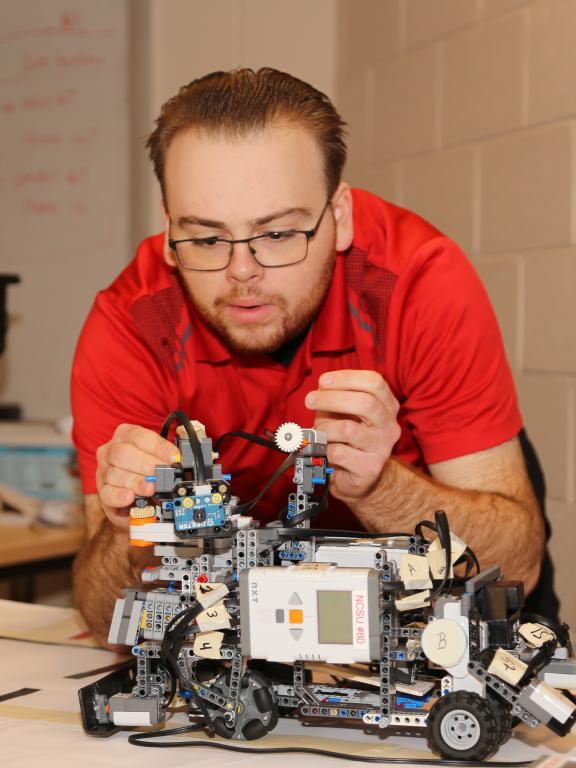The Associate in Engineering (AE) is an excellent pathway for students planning to transfer to a four-year institution to pursue a bachelor's degree in engineering. This degree is specifically designed to meet the transfer requirements of engineering programs for NC public universities.
The AE curriculum emphasizes coursework in mathematics, natural sciences, and engineering principles. For degree completion, students must complete a minimum of 60 semester hours credit (SHC).
This program is also available to high school students through our Career & College Promise program.
Additionally, this program offers a unique partnership with North Carolina State University (NC State). There is no other community college in the state that can offer a program such as this. Through this partnership, you can earn a Bachelor of Science in Engineering with a concentration in Mechanical or Electrical Engineering from NC State—all without leaving Craven County.
Skills You’ll Learn
The Associate in Engineering program provides students with job-related skills such as the following:
- Integrating content across STEM disciplines
- Demonstrating the ability to formally collect, interpret, and formulate conclusions from data using both quantitative and qualitative methods
- Writing and speaking with clarity, coherence, and persuasiveness
- Demonstrating how historical, philosophical, cultural, global, and socioeconomic factors affect human interactions and behaviors
- Using the theories of calculus and physics to model the physical world in order to make decisions or solve problems
Career Opportunities
The skills gained through completing an Associate in Engineering provide a strong foundation in quantitative reasoning, critical thinking, and problem-solving. These skills are essential for success across a wide range of engineering career pathways, such as:
- Aerospace
- Agricultural
- Biomedical
- Chemical
- Civil
- Electrical
- Environmental
- Industrial
- Mechanical
Plan of Study
The recommended course sequence for this program and a complete list of related classes are available in the Academic Catalog. Click the button below to view a copy of this plan of study, which is also available as a PDF.
